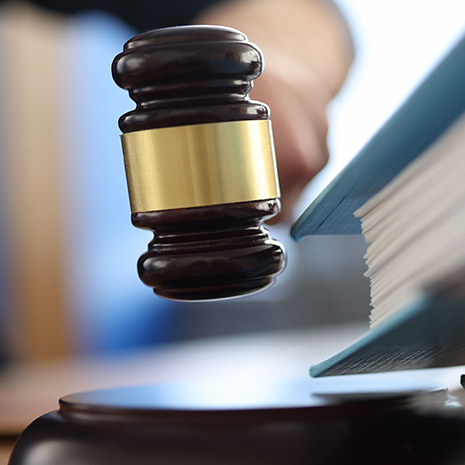Leading Federal Appeal Attorneys: Your Companions in Browsing the Appeals Process
Leading Federal Appeal Attorneys: Your Companions in Browsing the Appeals Process
Blog Article
Demystifying the Process of Federal Appeals: What You Need to Know
Browsing the elaborate world of government allures can commonly appear like traversing undiscovered waters for those strange with the process. Understanding the subtleties of appellate court territory, the details of submitting a notification of allure, offering a compelling quick, and making an influential dental argument are important parts that can significantly influence the outcome of a case. By untangling the layers of complexity bordering government allures, individuals can obtain a clearer insight right into the devices that regulate this essential phase of the legal system.
Recognizing Federal Appeals Process
Diving into the intricate realm of the government appeals process reveals a structured and methodical trip with the judicial system. Federal appeals serve as a critical system for reviewing decisions made by reduced courts. Understanding this procedure is essential for anybody entailed in lawful process at the federal level.
The process normally begins with a celebration dissatisfied with a reduced court's judgment submitting a notification of allure. This sets off a testimonial by a higher court, where a panel of judges evaluates the lawful disagreements offered by both parties. Briefs detailing the lawful thinking behind each event's setting are sent, and dental arguments may be heard to clarify complex issues.
The appellate court's decision is based upon a detailed evaluation of the lower court's procedures and the arguments offered. The courts do not reconsider facts however focus on whether lawful errors occurred that impacted the lower court's choice. Once the appellate court gets to a decision, it can attest, turn around, remand, or customize the reduced court's judgment, providing clearness and finality to the lawful dispute. Recognizing this procedure is important for browsing the intricacies of federal charms successfully.
Appellate Court Jurisdiction Clarified
Appellate court jurisdiction refers to the extent of instances that a particular appellate court has the power to review and decide upon. Unlike trial courts that hear situations for the very first time, appellate courts are limited to evaluating choices made by reduced courts.
Appellate courts have territory over certain types of cases, commonly those including lawful mistakes, step-by-step issues, or questions of legislation rather than factual disagreements. The territory of appellate courts is generally laid out in laws and legislations that regulate the court system. Comprehending appellate court territory is crucial for parties entailed in the allures procedure as it establishes whether an instance is eligible for testimonial and the degree to which the appellate court can intervene in the lower court's decision.
Filing a Notice of Allure
The initial action in commencing the government allures procedure entails submitting a Notification of Charm with the appropriate appellate court. This essential file formally alerts the court and the various other parties included in the situation that the appealing celebration intends to look for an evaluation of the reduced court's decision. Submitting a Notification of Appeal is a rigorous procedural requirement that sets the appellate process moving.
When preparing the Notification of Allure, it is essential to ensure conformity with the specific rules and standards of the relevant appellate court. federal crime lawyer. The record should typically consist of info such as the situation name, the reduced court's name, the date of the judgment being appealed, and a concise declaration indicating the premises for the appeal

Instruction and Oral Debate
In the appellate procedure, presenting written briefs and participating in oral debates play crucial duties in supporting for the appealing celebration's placement prior to the appellate court. Briefs are extensive lawful records that describe the events' debates, lawful authorities, and evaluation supporting their positions. These created submissions give the court with an in-depth understanding of the truths of the situation, the pertinent law, and why the appealing celebration thinks the reduced court's decision must be overturned.
Complying with the entry and review of the briefs, dental debates supply the parties a possibility to further clarify their placements, resolve any type of concerns the appellate judges may have, and emphasize crucial factors from their written briefs. Oral arguments are a chance for the attorneys to encourage the judges via spoken campaigning for and actions to inquiries from the bench.
Both the composed briefs and dental arguments are critical parts of the appellate process, enabling events to provide their situation completely and compellingly before the appellate court. - federal appeal lawyers
Obtaining the Appellate Court Decision
Upon completion of dental arguments and entry of written briefs, the following pivotal phase in the appellate procedure includes waiting for the crucial judgment from the appellate court. This period of expectancy can be filled with a mix of anxiousness and hope for events involved in the allure. The appellate court's decision is commonly delivered in a created layout and lays out the court's conclusions on the lawful issues provided, the reasoning behind their decision, and learn the facts here now the judgment made. The time frame for obtaining the appellate court's decision can vary, however courts aim to offer timely resolutions. As soon as the decision is released, celebrations should thoroughly evaluate the court's ruling to comprehend the outcome and figure out any type of more actions that may be needed. Whether the appellate court affirms, turns around, or remands the lower court's decision, comprehending the ramifications of the judgment is important for all parties associated with the appellate procedure. Therefore, immediately assessing and understanding the appellate court's choice is necessary in browsing the next steps in the lawful procedures.
Conclusion
In final thought, the government allures process is a complicated however critical action in seeking justice. Understanding the appellate court jurisdiction, filing a notice of allure, preparing briefs, and presenting dental disagreements are all essential parts of this process. Ultimately, obtaining the appellate court decision can offer quality and resolution to lawful disagreements. It is very important to navigate the government charms procedure with diligence and focus to information to accomplish a reasonable end result.
As we proceed from understanding the federal allures process to studying the ins and outs of appellate court territory, a fundamental facet comes to light relating to the authority and restrictions of these higher courts in the lawful landscape. Appellate court territory refers to the range of instances that a specific appellate court has the power to evaluate and choose upon. Unlike trial courts that hear situations for the first time, appellate courts are limited to assessing choices made by lower courts. Comprehending appellate court jurisdiction is critical for events included in the allures process as it figures out whether a case is eligible for evaluation and the extent to which the appellate court can intervene in the reduced court's decision.

Report this page